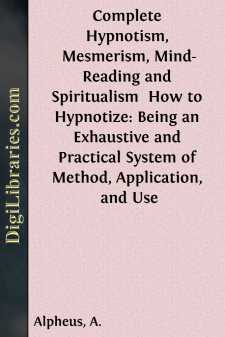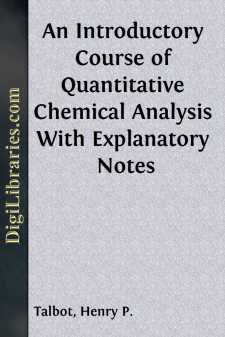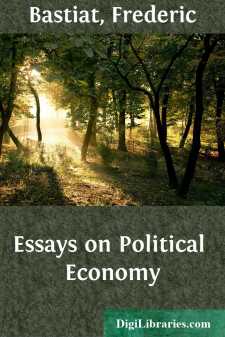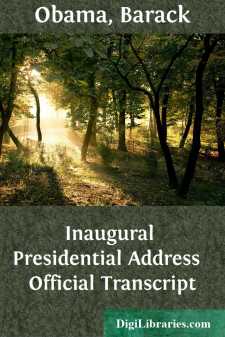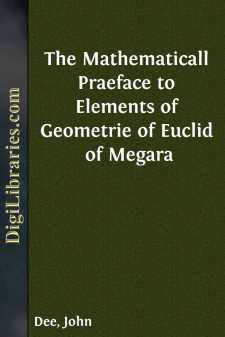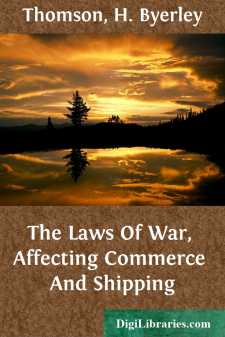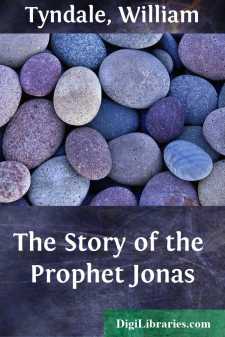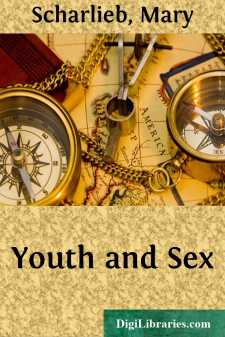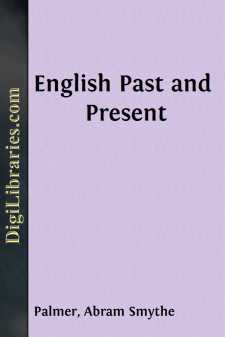Categories
- Antiques & Collectibles 13
- Architecture 36
- Art 48
- Bibles 22
- Biography & Autobiography 813
- Body, Mind & Spirit 142
- Business & Economics 28
- Children's Books 17
- Children's Fiction 14
- Computers 4
- Cooking 94
- Crafts & Hobbies 4
- Drama 346
- Education 46
- Family & Relationships 57
- Fiction 11829
- Games 19
- Gardening 17
- Health & Fitness 34
- History 1377
- House & Home 1
- Humor 147
- Juvenile Fiction 1873
- Juvenile Nonfiction 202
- Language Arts & Disciplines 88
- Law 16
- Literary Collections 686
- Literary Criticism 179
- Mathematics 13
- Medical 41
- Music 40
- Nature 179
- Non-Classifiable 1768
- Performing Arts 7
- Periodicals 1453
- Philosophy 64
- Photography 2
- Poetry 896
- Political Science 203
- Psychology 42
- Reference 154
- Religion 513
- Science 126
- Self-Help 84
- Social Science 81
- Sports & Recreation 34
- Study Aids 3
- Technology & Engineering 59
- Transportation 23
- Travel 463
- True Crime 29
Sort by:
by:
A. Alpheus
INTRODUCTION. There is no doubt that hypnotism is a very old subject, though the name was not invented till 1850. In it was wrapped up the "mysteries of Isis" in Egypt thousands of years ago, and probably it was one of the weapons, if not the chief instrument of operation, of the magi mentioned in the Bible and of the "wise men" of Babylon and Egypt. "Laying on of hands" must...
more...
by:
Henry P. Talbot
PART I INTRODUCTION SUBDIVISIONS OF ANALYTICAL CHEMISTRY A complete chemical analysis of a body of unknown composition involves the recognition of its component parts by the methods of !qualitative analysis!, and the determination of the proportions in which these components are present by the processes of !quantitative analysis!. A preliminary qualitative examination is generally indispensable, if...
more...
by:
Benjamin Jowett
INTRODUCTION AND ANALYSIS. The genuineness of the Laws is sufficiently proved (1) by more than twenty citations of them in the writings of Aristotle, who was residing at Athens during the last twenty years of the life of Plato, and who, having left it after his death (B.C. 347), returned thither twelve years later (B.C. 335); (2) by the allusion of Isocrates (Oratio ad Philippum missa, p.84: To men...
more...
by:
Frederic Bastiat
Capital and Interest. My object in this treatise is to examine into the real nature of the Interest of Capital, for the purpose of proving that it is lawful, and explaining why it should be perpetual. This may appear singular, and yet, I confess, I am more afraid of being too plain than too obscure. I am afraid I may weary the reader by a series of mere truisms. But it is no easy matter to avoid this...
more...
by:
Barack Obama
: My fellow citizens: I stand here today humbled by the task before us, grateful for the trust you have bestowed, mindful of the sacrifices borne by our ancestors. I thank President Bush for his service to our nation, as well as the generosity and cooperation he has shown throughout this transition. Forty-four Americans have now taken the presidential oath. The words have been spoken during rising...
more...
by:
John Dee
⧠The Translator to the Reader. Here is (gentle Reader) nothing (the word of God onely set apart) which so much beautifieth and adorneth the soule and minde of mã, as doth the knowledge of good artes and sciences: as the knowledge of naturall and morall Philosophie. The one setteth before our eyes, the creatures of God, both in the heauens aboue, and in the earth beneath: in which as in a...
more...
INTRODUCTION TO PART I. It would be superfluous to trouble my readers, in a concise practical treatise, with any theoretical discussion on the origin of the Law of Nations, had not questions of late been often asked, respecting the means of accommodating rules decided nearly half-a-century ago, to those larger views of international duty and universal humanity, that have been the natural result of a...
more...
by:
William Tyndale
The first Chapter. The word of the lord came unto the prophet Jonas the son of Amithai saying: rise and get thee to Nineve that great city and preach unto them, how that their wickedness is come up before me. And Jonas made him ready to flee to Tharsis from the presence of the lord, and gat him down to Joppe, and found there a ship ready to go to Tharsis, and paid his fare, and went aboard, to go with...
more...
by:
Mary Scharlieb
CHAPTER I. CHANGES OBSERVABLE DURING PUBERTY AND ADOLESCENCE IN GIRLS. 1. Changes in the Bodily Framework.—During this period the girl's skeleton not only grows remarkably in size, but is also the subject of well-marked alterations and development. Among the most evident changes are those which occur in the shape and inclination of the pelvis. During the years of childhood the female pelvis has...
more...
ENGLISH A COMPOSITE LANGUAGE “A very slight acquaintance with the history of our own language will teach us that the speech of Chaucer’s age is not the speech of Skelton’s, that there is a great difference between the language under Elizabeth and that under Charles the First, between that under Charles the First and Charles the Second, between that under Charles the Second and Queen Anne; that...
more...


